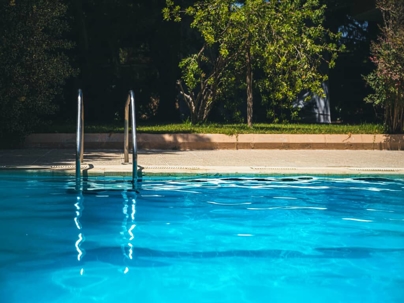Swimming pools are a big part of the Southern California lifestyle. From small to big, pools can be found at many residential homes, apartment and condominium complexes, hotels or resorts, and public facilities, providing respite from our oppressive summer heat, and plenty of enjoyable activities.
Of course, swimming pools by their very nature pose risks to those who use them, as well as to young children who find their way into pool areas without supervision.
Responsibility, Duty & Reasonable Measures
Because a reasonable pool owner is expected to know there are risks of foreseeable injuries or fatal drownings associated with pools, they (and in some cases other parties that have sufficient control over a pool) have legal obligations to take measures which ensure their pools and properties are adequately maintained so as to reduce risks of preventable harm. That’s because California maintains that:
In order for a defendant to be liable for injuries on their property, the accident must be one that was reasonably foreseeable.
Generally, anyone who “owns, leases, occupies, or controls” a property has a duty to exercise a reasonable care in its maintenance – a duty than cannot be delegated to a third party or independent contractor.
Though the existence of a legal duty is a key concept in premises liability cases, that duty can be different depending on how and when an accident occurred, who it involved, and whether the actions of the landowner were reasonable or negligent. For example:
- Regularly inspecting pools to identify potential hazards (i.e. damaged lights that electrify water or drains that pose entrapment risks), is viewed as reasonable. Failing to inspect or maintain a pool, or performing inspections on a very infrequent basis may be considered negligent.
- Erecting a pool fence that complies with regulations and periodically checking to ensure it is in proper working order and that it sufficiently prevents pool access are generally reasonable safety precautions when done correctly. Failing to use a proper pool barrier, fix open holes in existing pool fences, or block areas where an adult or a child could foreseeably enter and gain access to a pool, on the other hand, may be considered negligent.
As shown, issues concerning a landlord’s duty of care have less to do with the existence of the duty (it’s well established in California that landowners must maintain property in their possession and control in a reasonably safe condition (Ann M. v. Pacific Plaza Shopping Center 1993)), and more to do with the scope of the duty – or what that duty looks like in regard to the surrounding circumstances.
This means the task for Plaintiffs and their attorneys is determining what constitutes “reasonable” in terms of a landowners’ duty to take “reasonable” measures to maintain a safe premises.
Again, the facts of a case have a lot of influence on determining what is and is not “reasonable” under the circumstances, which is why California juries are instructed to consider various factors when determining whether a defendant used reasonable care (CACI 1001). This includes, among other relevant factors, the:
- Location of the pool;
- Likelihood of people coming on to the property in the same manner as the Plaintiff;
- Likelihood of harm;
- Probable seriousness of such harm
- Whether the defendant knew or should of known about the dangerous condition;
- The difficulty protecting against the risk of harm created by the condition;
- The extent of the defendant’s control over the condition that created the risk of harm.
In the most basic terms, it is possible to hold someone liable for damages arising from a swimming pool accident caused by negligence. However, Plaintiffs need not only prove that negligence (i.e. breach of duty) caused their harm; they must also determine who can be held liable.
The Type of Swimming Pool
The type of swimming pool involved in an accident has important implications in a premises case, especially when determining liability. Generally, pools may be either:
- Public swimming pools, which are owned and operated by a local municipality or one of its agencies, such as a Parks & Rec department, and located on public property; or
- Private swimming pools, which are owned and maintained by the owner of the private property where the pool is located.
Whether a pool is private or public has great bearing on the trajectory of a civil personal injury or wrongful death lawsuit, as we explain below.
Public Swimming Pools
Lawsuits over accidents involving public swimming pools can be complex matters. That’s because there are unique laws and legal concepts which apply, as well as unique procedural rules for filing claims against the government (even if it’s a local town or its Park & Rec division). For example, claims filed over public swimming pool accidents may be subject to:
- Specific “notice of claim” requirements, meaning there are rules for how and when Plaintiffs must notify the government of their intent to file a claim;
- A different statute of limitations than those that apply to accidents on private property;
Aside from different rules and procedures, public swimming pools are also subject to various local, state, and federal regulations. These include requirements for:
- Drain anti-entrapment devices (AB 1020);
- Proper pool equipment, slip-resistant coping, adequate handholds, correct size / location, and other structural regulations (California Building Code);
- Training lifeguards in First Aid & CPR (CA Health & Safety Code 1797.182);
- Proper swimming pool sanitation (CA HSC 116025 – 116068);
Additionally, like any premises owner, public entities (and their employees) still have obligations to exercise reasonable care in maintaining a safe property and pool, and can be held liable when their negligence causes preventable harm. This may include:
- Lack of fencing or adequate barriers to prevent pool access.
- Failures to post warning signs about possible dangers posed to swimmers;
- Lack of supervision, negligent supervision, or failures to have lifeguards on duty;
- Dangerous decks, coping, or pool surfaces that pose unreasonable risks of slips and falls;
- Failures to provide adequate rescue equipment or First Aid (i.e. AEDs);
- Failures to properly store pool equipment when not in use;
- Failures to ensure safe use of chemicals, or proper chemical balance in pools.
Private Swimming Pools
Lawsuits over accidents that occur at private swimming pools involve victims (or the family of a victim) filing civil claims against the owner of the pool. Depending on the circumstances, this may be:
- A residential homeowner;
- A Homeowner’s Association (HOA) or neighborhood community association;
- A property management, apartment complex, or rental property agency;
- The landlord of a private facility (i.e. a gym, YMCA, Aquatic Center, or similar entity that has a pool on site);
- A summer camp or overnight camp for children.
Though these entities may hire people to maintain their pool, clean it, or perform repairs as needed, they cannot escape liability for failure to maintain pools in a safe condition by delegating the duty to an independent contractor (such as a pool cleaning service). In California, a landowner’s duty of care is a non-delegable duty (Brown v. George Pepperdine Foundation 1943).
As such, private property owners can be held liable for dangerous conditions involving their pool if they knew or should have known (actual or constructive notice) about them, but failed to take reasonable measures in fixing them, protecting against them, or warning guests about them.
For example, homeowner’s can be held liable for accidents which could have been prevented had they complied with California’s Swimming Pool Safety Act, which requires residential pool owners to equip their pools with at least 2 of 7 approved safety measures, such as a removable mesh fencing that is self-closing and self-latching, a safety pool cover, or a pool alarm, among others.
Swimming Pool Accidents at Apartment & Condo Complexes
Many personal injury lawsuits over swimming pool accidents occur at semi-private pools – that is, pools intended for use by residents of an apartment or condo complex.
At Biren Law Group, our attorneys have successfully handled a number of condominium and apartment complex pool accidents, including those where landowners failed to maintain pools in a reasonably safe condition, or address dangerous conditions.
Cases involving apartment swimming pool accidents may claim negligence over:
- Improperly fenced pools / common areas, including pools where children can gain unsupervised access;
- Inadequate maintenance of pools, pool areas, and pool equipment;
- Excessively dirty or littered pools that prevent parents from being able to find a missing child;
- Electrocution caused by broken pool lights or poorly maintained pool equipment;
- Broken, poorly maintained, or unsafe pool drains or jets that entrap swimmers’ clothing, hair, or body parts;
- Fatal drownings / wrongful death;
- Near drownings resulting in permanent brain damage.
Evidence obtained through property accident investigations is critical in proving how property owners failed to exercise reasonable care in maintaining their pools and premises.
Damages in Pool Accident Cases
Depending on who is named as a defendant, Plaintiffs may seek compensation for their damages through a person’s homeowner’s insurance policy, an apartment or HOA property insurance policy, or the insurance policies held by private facilities or entities. This may include compensation for:
- Medical bills;
- Future medical expenses associated with severe or permanent injuries / disabilities;
- Lost income and lost future income;
- Physical pain and suffering;
- Emotional injuries, including emotional suffering endured by families;
- Wrongful death, including funeral and burial expenses, and loss of companionship.
Other Issues in Pool Accident Cases
Every case is unique, and our Father-Son legal team at Biren Law Group encourages victims and families to speak personally with our attorneys to better understand the particularities of their cases, and their rights and legal options.
While we’ve discussed the general concepts of litigating swimming pool accident cases, there are many other issues that may arise. Some of these include:
- Defective Products: In some cases, it may be discovered that accidents were caused (in part or in whole) by defective products, such as defective pool toys, drains, or equipment. In these situations, it may be possible for Plaintiffs to pursue product liability claims against the manufacturer of the unsafe product, or a distributor or retailer who made it available.
- Airbnb: Services like Airbnb have raised many legal questions in recent years. Though they’re being increasingly regulated in Los Angeles, they may create challenges in cases where short-term rental guests suffer harm at privately owned pools, be it a condo or apartment complex pool, or a pool at a single family home. While landlords still have a duty to take reasonable care in ensuring the safety of property, they may dispute liability if tenants or homeowners violated rules in bylaws or Rules & Regulations when they put their multi-family residence on Airbnb.
- Trespassers: “Pool hopping” is a common occurrence, and while some states have laws which lessen a landowner’s obligations to trespassers, or hold them responsible for “attractive nuisances,” California generally does not. In California, property owners must take reasonable care to keep their property in a reasonably safe condition regardless of who may be harmed.
Have questions about a swimming pool accident or another civil personal injury case? Our award-winning legal team at Biren Law Group is available to help. Contact us to speak with an attorney. Case evaluations are FREE and confidential.

